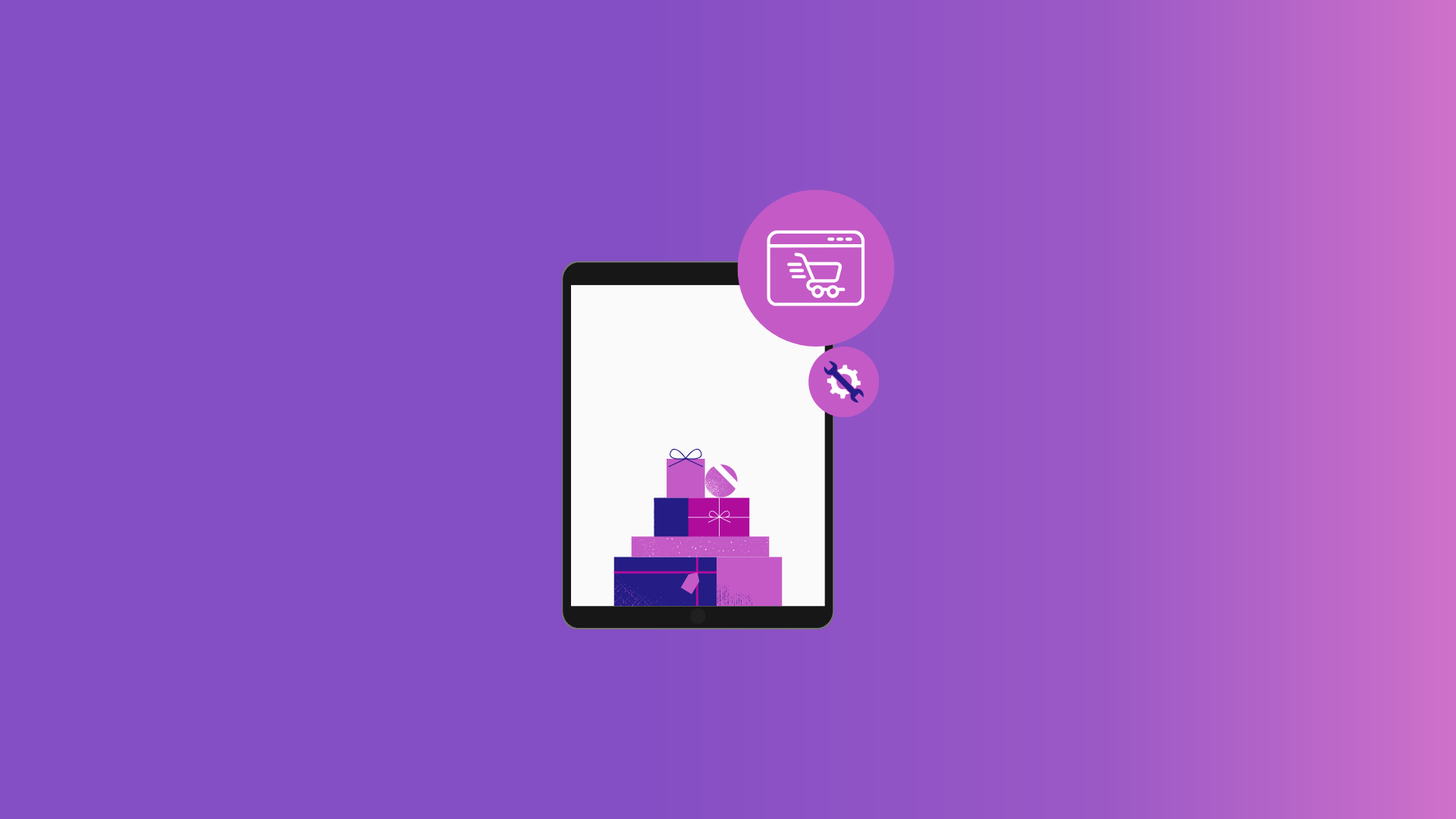Holiday Ecommerce Strategy: A Guide to Maximizing Sales During the Festive Season

Preparing Your Ecommerce Store for the Holiday Shopping Season
It’s hit-or-miss season; your holiday eCommerce marketing strategy starts with a technically sound online store.
Website performance and load speed optimization
A fast, responsive website is one of the top factors for ranking your online store higher. The optimum loading speed for websites is less than three seconds.
Anything less than the optimum loading speed will turn your visitors away. Plus, speed is one of Google’s ranking factors. This means that search engine algorithms prioritize quick and responsive websites.
Website speed is always synonymous with choosing a powerful hosting provider. Your servers must deal with traffic spikes during the holiday season. There are other simple tricks you can do to improve loading speed, including the following:
- Reduce file sizes by using image compression tools like TinyPNG.
- Minify HTML, CSS, and JavaScript codes through HTMLMinifier, CSSNano, or Closure Compiler.
- Enable browser caching on your website.
Websites also moderate the number of ads they show on a single page. Placements from Google Ads and other native ads could affect your loading speed.
Inventory and supply chain management
Here’s a golden rule: don’t sell products that you can’t produce. It’s an obvious requirement, but many businesses still fail to stock up their inventories.
There are valid reasons, of course. Manufacturers might encounter problems down the road that nobody can anticipate. Still, there are preventive measures you can take, including these proven tips:
- Use data-driven insights for more accurate forecasting. Consult marketing experts in analyzing market trends and historical data.
- Maintain a buffer stock. This is your safety net in case you encounter sudden surges in product demand.
- Invest in a reliable inventory tracking system. Try cloud-based solutions like NetSuite and Zoho. Cloud-based systems don’t lose data even during power interruptions.
We also recommend building good relationships with your suppliers. It’s not just about getting timely deliveries. You might even get first dibs on their products.
Mobile optimization
In 2023, mobile eCommerce collected 60% of global eCommerce revenue. Mobile shopping is a growing trend, requiring you to optimize your shop for mobile devices.
Here are several tips for optimizing your online business for mobile use:
- Test your shop’s mobile responsiveness through tools like Sitechecker.
- Simplify your navigation and integrate readable buttons.
- Moderate your use of multimedia and ads on mobile pages.
Also, try to simplify the checkout process so that customers can easily complete their transactions. Refrain from placing too many product recommendations on the checkout page.

Holiday-Themed Marketing and Promotions
As the holiday season rolls, market trends could shape your holiday marketing strategy.
Create holiday-specific campaigns
There’s no better time to get creative than the holiday eCommerce season. We saw Sugarbones gamify their holiday marketing efforts through mystery boxes. 22 Days Nutrition also amped up their Black Friday sales with mystery discount codes.
People are excited about all the discounts you offer. You just have to create brand-specific, holiday-themed marketing campaigns. Here are several ideas to get you started:
- Time-limited offers: Leverage expiring discounts during Black Friday, Cyber Monday, and other major sales events.
- Holiday-themed promotions: Offer special product bundles and free shipping coupons. You can also write a holiday gift guide article for budget-based recommendations.
Exclusive or member-only deals are also effective on holiday campaigns. If you have a loyalty program going, you can double or even triple their points off online purchases.
Utilize holiday email marketing
Email marketing should be a staple in your brand’s holiday campaign. You can customize it in many ways, from dynamic newsletters to targeted advertisements.
Not only small and medium businesses are capitalizing on targeted emails. Even enterprise email marketing strategies are preparing for holiday sales. Here’s how your email push can reel in new customers and boost holiday purchases:
- Experiment with creative variations. Incorporate holiday-themed discounts and freebies into your subject lines. Add festive multimedia elements, including holiday GIFs and banners.
- Send targeted emails. Use digital marketing tools like Mailchimp or Kit to create customer segments. This way, you can send personalized emails to potential customers.
Also, holiday marketing shouldn’t be limited to nationwide holidays. You can also send personalized offers to celebrate birthdays and anniversaries. This strategy can get you loyal customers and improve your retention rate.
Leverage social media for holiday sales
Social commerce revenue is projected to reach $1 trillion by 2028. Almost all online retailers are building their presence on social media platforms. For a good reason, too.
Your target audience is now mostly active on social media. We recommend these unique strategies for leveraging social marketing campaigns:
- Tease holiday gifts to your existing customers. Offer exclusive gifts to members of your loyalty programs. Post these teasers on social media to attract customers.
- Leverage User-Generated Content (UGC). Offer rewards to customers for including your products on their social posts.
You can also collaborate with influencers for a more successful holiday season. Just make sure to partner with relevant influencers in your niche.

SEO Strategies to Capture Holiday Shoppers
Rank your online store on search results for a more sustainable holiday success.
Target seasonal keywords
Keyword research is the secret sauce of successful Search Engine Optimization (SEO) strategies. Targeting high-intent keywords can sustain the long-term growth of your eCommerce website.
For the eCommerce holiday season, keywords take a higher level of importance. Online shoppers are looking for specific holiday deals. Here are strategies that can optimize your holiday keyword research efforts:
- Go for long-tail holiday-themed keywords. Entice shoppers with long-tail keywords like “Black Friday laptop and tablet bundles for him”. Search volume might be lower, but you get higher click-through rates and conversions.
- Use keyword research tools. There are free tools like Google Keyword Planner and paid tools like Ahrefs.
You can also outsource keyword research tasks to experts offering eCommerce SEO services. SEO experts can optimize your eCommerce site, particularly in targeting high-purchase keywords.
Optimize product descriptions and meta tags
People find the products they need through your product descriptions. Ecommerce businesses prioritize these descriptions in their holiday marketing efforts.
Product descriptions can give you unique advantages during the peak shopping season. Here’s how you can make them work for you:
- Focus on gift-giving themes. Giving gifts is an essential part of holiday online shopping. Write about gift bundles and packages.
- Capitalize on urgency and scarcity. Leverage your limited-time offers and low-stock warnings. This motivates shoppers, especially those who failed to do their holiday shopping earlier.
It’s crucial to integrate keywords both in your product descriptions and meta tags. Most businesses outsource keyword integration to content marketing agency services. Content marketers are experts in using keywords to increase sales and engagement.
Implement structured data for rich snippets
People want to quickly find products when they’re shopping online. That’s what rich snippets are for. You can show your product details and images right on the first page of Google.
Implementing schema markup is actually fairly easy if you follow these steps:
- Update all your product information. This includes the product name, description, image, price, and availability. You should also include reviews to increase brand authenticity.
- Use tools to make the process easier. You can manually code the schema markup. You can also use markup generators or plugins, including Yoast SEO or Google’s Structured Data Markup Helper.
Incorporating relevant keywords also works here. However, we don’t recommend keyword stuffing. Instead, focus on updating your schema details.

Tips for Enhancing the Holiday Customer Experience
A fast, no-hassle online shopping experience will help you meet all customer expectations.
Simplify the checkout process
The checkout sequence should be as quick and straightforward as possible. You don’t want your customers to change their minds, right?
A smooth checkout experience can increase your eCommerce sales. Take a look at these tips for simplifying checkouts:
- Use auto-fill on the checkout form.
- Allow customers to purchase products without creating an account.
- Offer multiple payment options, including cash on delivery (COD), credit cards, debit cards, and digital wallets.
It’s also essential to provide security layers in your checkout process. Use encryption methods to protect sensitive customer data, especially their financial and banking details.
Offer flexible shipping options
It’s the busiest shopping time of the year. The average customer wants their order to be shipped immediately. That’s why you must align your shipping options with the holiday demands.
Being flexible with your shipping options is a solid marketing strategy. We recommend offering these options during Black Friday, Cyber Monday, and other holidays:
- Offer free shipping or discount codes. This will attract more attention to your eCommerce business.
- Provide a faster shipping option. Allow customers to avail of priority shipping, where they get their orders within 24-48 hours.
- Display real-time tracking updates. Work with shipping partners to offer real-time updates. If possible, provide guaranteed delivery dates.
Moreover, ensure that you provide clear policies for returns and exchanges. We recommend offering free product returns to increase brand loyalty.
Improve customer service availability
No matter how prepared you are, customers will always encounter issues. Your customer service team should be ready for an uptick in inquiries, especially during the holiday season.
Customers go to your online shop to avoid the hassles of in-store shopping. Your customer support workflows can help ensure hassle-free shopping.
- Provide 24/7 support to mitigate technical issues and inventory problems.
- Invest in responding quicker to customer inquiries. Automate support ticket workflows through tools like Zendesk and Help Scout.
- Automate triggered responses for order updates and shipping notifications.
Plan ahead for the holiday period by noting possible customer problems. This can help you prepare for the surge in customer support tickets.
Post-Holiday Strategies for Retaining Customers
Future-proof your holiday marketing strategy into a sustainable growth driver.
Holiday follow-up emails
Continue communicating with customers even after the holiday shopping spree. Let them know that you appreciate their purchases by offering more discounts.
Here are trending post-holiday emails that could help increase your website and mobile sales:
- Offer early access to new products or upcoming sales events.
- Send personalized product recommendations based on their purchases or browsing history.
- Automated triggered emails based on abandoned shopping carts.
You can also invite customers to your loyalty program. Offer a free gift on their first purchase as a member.
Collect reviews and feedback
Gathering reviews is essential in improving every facet of your business. You can display these reviews on your social platforms to establish brand trust and reliability.
Of course, you don’t want to nag your customers about giving reviews. A subtle request, along with some incentives, could do the trick.
- Offer discounts or freebies for customers who leave reviews on your platform.
- Request for a short survey or feedback after they purchase a product. Send personalized emails to collect their feedback about the product and the whole shopping experience.
You can also use social listening tools to monitor brand mentions and sentiment. Examples of these tools are Brandwatch and Brand24.
Prepare for returns and exchanges
Have a customer-friendly return and exchange policy to improve customer satisfaction. This encourages repeat purchases and improves brand trust.
If possible, offer free returns, especially during the holiday season. Don’t worry; the revenue surge will cover your expenses. Plus, you’ll acquire repeat customers and gain free word-of-mouth marketing.
Key Takeaways
Preparing for the holiday shopping season isn’t a short-term marketing strategy. Retaining the customers you acquired during the holiday period can drive sustainable growth.
How can you improve your customer retention rate, though? It takes continuous communication. Follow up after the holidays, invite them to your loyalty programs, and offer personalized recommendations.
Working with search marketing agencies like Fortis Media can do the trick. These are experts who can capitalize on your marketing opportunities, especially during the holiday season. You can outsource tasks, including SEO, paid ads, and content marketing.
FAQs
What is the best time to start preparing for holiday ecommerce?
Advertising your holiday deals two to three months before the shopping event is best. For example, you want to start publishing gift guides two months before the Cyber Monday event in November. This way, you can build anticipation, acquire high-quality leads, and get a step ahead of your competitors.
How can I make my holiday promotions stand out?
Targeted advertisements and personalized product recommendations can maximize the potential of your holiday promotions. You want to show promos and deals that address your audience’s interests and pain points. We also recommend leveraging your social media reach to publish teasers of your upcoming holiday promos.
Should I offer free shipping during the holidays?
Yes, free shipping offers a unique competitive advantage, especially during holidays and major sales events. We also recommend offering priority shipping, as this could be a big help for people doing last-minute shopping and gift-giving. You could create a sense of urgency by offering time-limited free shipping on your products.
What if I experience unexpected high traffic during the holiday season?
We recommend informing your customers immediately, followed by a notice as to when your website will be working again. However, it’s still best to prevent high-traffic problems by investing in a more powerful hosting provider and performing load tests to simulate your website’s traffic.
Read our other articles

Google March 2025 Core Update: iGaming Industry Impact with Real Cases


Benefits of Enterprise SEO: Why Large-Scale Businesses Need It


B2B SaaS SEO: Best Practices and Strategy for 2025






